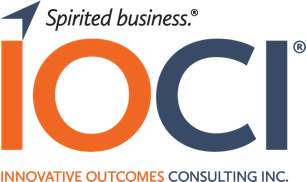
What role does relationships play in workplace success?
Karen Bridbord, Ph.D., a licensed psychologist and executive coach in the New York metropolitan area, assures that relationship issues also come up in the workplace and not only affect productivity, but can stall those hoping to advance their careers.
Bridbord, who’s part of the IOCI coaching team, works with systems – couples, families and, yes, companies, who are seeking help with issues connected to relationships.
We sat down with Bridbord to learn about her modification of Gottman’s ideas and to find out what role relationships play in workplace success. For more information, view our full Q/A with Karen Bridboard: Relationships: Think they’re only important in your personal life? Think again.
Is relationship conflict avoidable in the workplace?
I don’t know that you want it to be. Conflict is good when there’s a level of safety, it needs to feel safe to some degree. And it’s not about the individual people, but what you’re working toward.
For example, playing devil’s advocate is a form of conflict, but it’s a way of getting at the blind spots. So in some cases, conflict can lead to innovation, collaboration and higher levels of productivity.
Now there are of course people with whom the act of disagreeing with them is an act of aggression, and that’s problematic and doesn’t lead to growth. But we all have blind spots and we do have to create a boundary about how we engage – and that’s where the Four Horsemen come in – but people need to learn how to have productive conflict, and that’s where coaching comes in.
CASE STUDYFailure to trust
Putting a point on why relationships matter in the workplace, Bridbord points to the case of a client who wanted to move up in his organization but just couldn’t get there.
It turns out his colleagues didn’t trust him. Why?
He took a hard line on the idea that his work life and his personal life had to be separate. He didn’t reveal much to colleagues, thinking that being uber professional meant not sharing anything personal.
Before long, he had earned a nickname – CIA agent.
His goal of being promoted to a senior position was thwarted because people didn’t feel comfortable around this person. The stringent boundary he had created meant others were unable to connect.
To meet his goal of earning a promotion, Bridbord worked with the employee to help him open up more. The idea was to diffuse the boundary he had created so people could see that he was human.
Together, they crafted messages and developed strategies so he could comfortably share parts of who he was.
And Bridbord explained that building relationships at work is done in the service of building trust and collegiality. That seemingly unproductive banter before meetings helps people feel connected – How was your weekend? What’s something outside of work that you’re excited about? And when they’re connected, work flows better, projects get done more seamlessly and people have improved communication.
And the outcome?
Change isn’t easy and a full mindset shift from “CIA agent” to personal sharing took some time. However, once he started to lower his defenses and share about himself, he had several “a-ha moments.” He started to enjoy work more and his connections with people resulted in him feeling more invested in the company. He also realized that through forging friendly, collegial interactions with colleagues, people seemed to want to work with him more – and they produced better outputs because they wanted to do well for him.
For more on building successful relationships in the workplace, view the full interview with Bridbord.
About Karen Bridbord, Ph.D.

Karen Bridbord, Ph.D., a licensed psychologist and executive coach in the New York metropolitan area, assures that relationship issues also come up in the workplace and not only affect productivity, but can stall those hoping to advance their careers.
Trained by John Gottman, a psychology professor known for his work on marital stability and relationship analysis through scientific direct observations, Bridbord has taken his ideas and models and applied them to the workplace.
Much as Gottman’s work aims to improve relationship functioning and the avoidance of those behaviors that harm human relationships, Bridbord’s work seeks to address workplace relationship building, particularly when it stands in the way of career advancement.
Relationship-building is just one issue that can be addressed with executive coaching. IOCI can also help with issues like procrastination, habit formation and leading through adversity. Contact IOCI to learn more.
Marialane Schultz is the founder of IOCI. She helps individuals and organizations perform at their best, do meaningful work and be impactful through customized coaching and consulting engagements.

